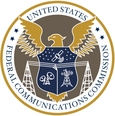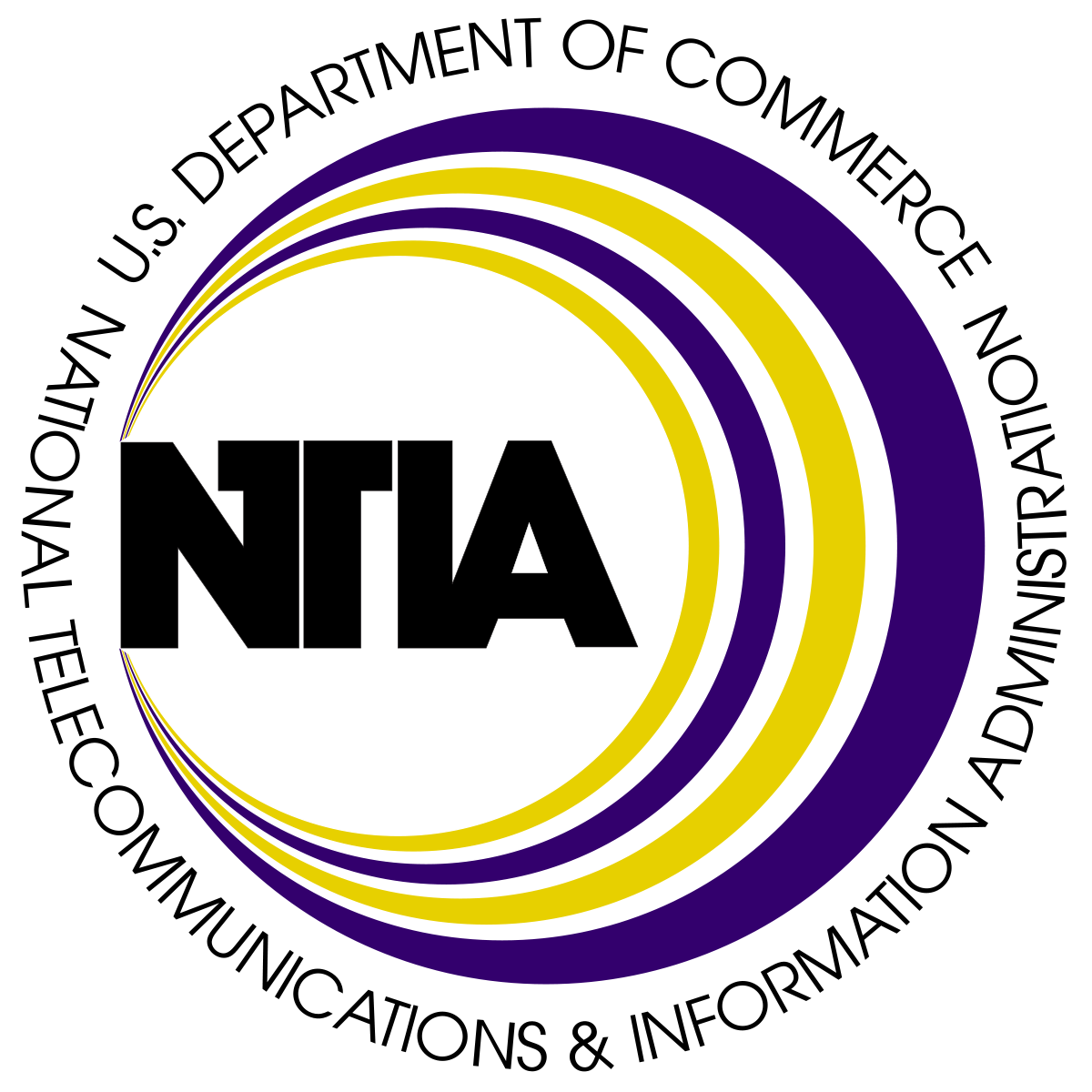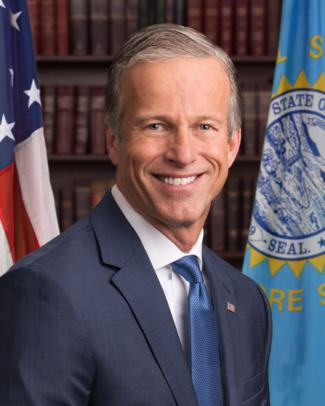The Broadband Oversight Plan
Wednesday, February 15, 2023
Digital Beat
The Broadband Oversight Plan
As the 2022 elections essentially came to a close on December 6, 2022, then-Minority Leader Kevin McCarthy (R-CA) promised that the House of Representatives—under a new, Republican majority—would "conduct rigorous oversight of the federal government" in the 118th Congress. "We will leave no stone unturned in order to deliver the accountability the American people deserve," he declared and specifically promised oversight of federal spending created in the American Rescue Plan Act and the Infrastructure Investment and Jobs Act. Here we look at some of the oversight undertaken in both the House and the Senate.
House Commerce Committee
The House Committee on Energy and Commerce's jurisdiction includes wired and wireless telecommunications including voice, video, audio, and data services. The committee's domain includes electronic communications and the internet, broadcast and cable television, privacy, cybersecurity and data security, and consumer protection and product safety. Specifically, the committee's Communications and Technology Subcommittee has jurisdiction over electronic communications, both Interstate and foreign, including voice, video, audio, broadband, and data, whether transmitted by wire or wirelessly, and whether transmitted by telecommunications, commercial or private mobile service, broadcast, cable, satellite, and microwave; technology generally; spectrum and federal and commercial spectrum management; emergency and public safety communications; cybersecurity; internet and interactive computer service liability protection; communications privacy and data security; the Cybersecurity and Infrastructure Security Agency in the Department of Homeland Security; the Federal Communications Commission (FCC); and the National Telecommunications and Information Administration (NTIA) at the Department of Commerce, which is the federal agency primarily responsible for advising the President on telecommunications policy and managing spectrum use by the executive branch.
On February 9, 2023, the House Commerce Committee revealed its oversight plan for the 118th Congress. With implementation of the Infrastructure Investment and Jobs Act and other recent laws in full swing, the plan offers a roadmap of how the committee will review the government's actions to close the digital divide, especially during the COVID-19 pandemic.
First and foremost, the committee promises to hold hearings and conduct rigorous, through oversight, reach conclusions based on an objective review of the facts, and treat witnesses fairly. The committee's oversight functions will focus on 1) cutting government spending through the elimination of waste, fraud, and abuse; and 2) ensuring laws are adequate to protect the public interest or are being implemented in a manner that protects the public interest, without stifling economic growth.
Broadband Availability
The committee will investigate whether regulatory policies are helping or hindering broadband deployment. In particular, the committee will examine the need for reforms to state and federal permitting processes to speed the deployment of fiber optic systems and 5G wireless services. Additionally, the committee will conduct oversight of funding mechanisms for broadband deployment and adoption, including the $9 billion per year Universal Service Fund, the $42 billion Broadband Equity, Access, and Deployment (BEAD) grant program created in the Infrastructure Investment and Jobs Act, and other federal grant programs that could be awarded for broadband deployment. Specifically, the committee will examine what procedures are in place to control waste, fraud, and abuse, whether the funds are appropriately targeted, and the impact of the funding on jobs and the economy.
Internet Governance
The committee aims to ensure continued growth and investment in the internet. In particular, the committee will monitor efforts to employ the multi-stakeholder model of internet governance—in which governmental and non-governmental entities develop best practices for the management of internet networks and content. The committee will also monitor international efforts to replace multi-stakeholder governance with domestic regulation and international multilateral institutions, and will continue to support U.S. leadership in these international standards-setting bodies.
Federal Communications Commission

During the 118th Congress, the committee will conduct FCC oversight, including the efforts to reverse the reclassification of broadband internet access service as a telecommunications service subject to Title II of the Communications Act of 1934 (which is a central aspect of the debate over network neutrality) and efforts to bring transparency and accountability to the FCC’s processes. The committee will evaluate the impact generally of FCC actions on voice, video, audio, and data services, public safety, broadband mapping, and security of our networks. The committee will also focus its oversight efforts on the FCC’s administration of funding for the Affordable Connectivity Program (ACP) and the Emergency Connectivity Fund (ECF), and investigate any cases of waste, fraud, and abuse. The committee will pay particular attention to whether the FCC conducts cost-benefit and market analyses before imposing regulations.
National Telecommunications and Information Administration

The committee will conduct NTIA oversight, including its administration of broadband grant programs created in the Infrastructure Investment and Jobs Act. The committee is interested in efforts to bring transparency and accountability to NTIA’s processes. The committee will also look into NTIA’s authorities and determine whether NTIA needs additional authorities to keep pace with the advancement of modern technology and the advancement of the communications marketplace.
Spectrum Management
The FCC and NTIA share management of radio frequency spectrum: the FCC administers spectrum for non-Federal use (i.e., state, local government, commercial, private internal business, and personal use) and the NTIA is responsible for managing the Federal government's use of spectrum.
The House Commerce Committee will conduct oversight of the FCC’s and NTIA's management and allocation of the nation’s spectrum for commercial and government use. The committee will evaluate spectrum-management policies to ensure efficient use of the public airwaves for innovative communications services. The committee will also examine whether plans for allocating spectrum maximize broadband deployment and encourage investment. The committee will pay particular attention to FCC and NTIA implementation of the Infrastructure Investment and Jobs Act, which included provisions intended to make more spectrum available for commercial wireless services.
Interoperable Public Safety Communications

The committee will examine whether the communications needs of first responders are being met. The committee will examine the progress being made to ensure that first responders have interoperable communications capabilities with local, state, and federal public safety officials. The committee will also examine the progress being made by the First Responder Network Authority (FirstNet) in carrying out the mandates of the Middle Class Tax Relief and Job Creation Act of 2012. In addition, the committee will conduct oversight regarding the implementation of legacy 911 and Next Generation 911 (NG911) services. The committee will review efforts to promote deployment of these advanced systems and the challenges to realizing ubiquitous NG911.
Consumer Privacy and Data Security
In the 118th Congress, the committee will examine issues relating to the privacy and data security of information collected by businesses and service providers about Americans and the potential for improving protection and security of such data, without undercutting innovative uses that benefit Americans and the economy, such as artificial intelligence and machine learning. Further, the committee will continue to review the manner in which fraud and other criminal activities affect e-commerce. The committee will also explore privacy and cybersecurity policies surrounding the Internet of Things and blockchain technologies.
The committee will investigate the impact of social media on mental health, including the algorithms used by social media companies to cause ever-increasing use of and dependence on these platforms, particularly by children. Additionally, the committee will conduct oversight of social media and technology companies’ policies and procedures regulating publication, appeals processes regarding censorship and deplatforming, censorship, handling of claimed misinformation, and the government’s role in these policies and procedures.
The committee will investigate and conduct oversight of the collection and use of data by social media, technology companies, and data brokers. This will include TikTok and its relationship to its parent company ByteDance, and other similarly positioned companies with close ties to the Chinese Communist Party.
Cybersecurity
The committee aims to ensure the country is well protected while at the same time avoiding one-size-fits-all approaches to cybersecurity that hinder the flexibility of commercial and governmental actors to combat the rapidly evolving threats. The committee will also review the efforts of agencies within its jurisdiction to secure their networks. In doing so, the committee will explore current cybersecurity threats and strategies to address those threats. The committee will also examine government initiatives to improve cybersecurity both in the public and private sectors, and review efforts at agencies to regulate cybersecurity. The committee will also examine the security of the Internet of Things, discovery and disclosure of cybersecurity vulnerabilities, and the National Institute of Standards and Technology Cybersecurity Framework.
Senate Commerce Committee
Similar to the House Commerce Committee, the Senate Commerce Committee has jurisdiction over all sectors of communications, including: wired and wireless telephony; the internet; commercial and noncommercial television; cable; satellite broadcast; satellite communications; wireline and wireless broadband; radio; spectrum and consumer electronic equipment associated with such services; and public safety communications. The committee also is responsible for oversight of the FCC, the Corporation for Public Broadcasting (CPB), and the NTIA.

The committee's Subcommittee on Communications, Media and Broadband convened an oversight hearing in December 2022 examining ongoing and past efforts within the public and private sectors to bring affordable, resilient and secure broadband to all communities. The subcommittee's minority leader, Sen. John Thune (R-SD), noted the billions of dollars Congress has made available for broadband programs since March 2020. He said these monies should help close the digital divide. "The bad news is that this funding is spread out over 15 separate agencies and 133 programs." He called that "deeply concerning." Sen. Thune said the NTIA has fumbled previous efforts to close the digital divide.
"I am afraid that without stringent oversight NTIA will make—and has already made—the same mistakes in managing the $42.5 billion Broadband Equity, Access, and Deployment Program and the Tribal Broadband Connectivity Program."
On December 6, Sen Thune launched a nationwide oversight effort that is reviewing numerous broadband programs spanning several federal agencies. He said the primary goal of his effort is to hold these agencies accountable and ensure that previously authorized broadband funding is being used in the most efficient way possible to protect taxpayer dollars.
Sen. Thune sent letters to various stakeholders asking 19 questions about federal broadband programs.
- As part of the Infrastructure Investment and Jobs Act, Congress established a technology-neutral approach for the BEAD program. Do you believe NTIA followed Congress’ intent in establishing a technology-neutral approach? If not, should Congress consider amending the Infrastructure Investment and Jobs Act statute to make it more explicit that all technologies are allowed to participate? If so, how?
- In the BEAD Notice of Funding Opportunity (NOFO), there are detailed reporting requirements on subgrantees who do not use a unionized workforce or a project labor agreement. As a practical matter, do you think this favors certain providers over others? Does Congress or NTIA need to take further action to remove this requirement?
- The BEAD NOFO promotes government-owned networks. Do you believe government-owned networks are an effective entity to deploy broadband networks? If yes, please explain.
- One of the provisions of the IIJA requires products and materials used for broadband projects to be produced in the United States. Given the current supply chain issues, should Congress consider modifying this obligation or otherwise clarify this provision?
- The Broadband Buildout Accountability Act (S. 3671) would remove the Freedom of Information Act exemption in the BEAD program. Should Congress enact this legislative proposal? If not, why?
- Are there other technical issues in the BEAD program that Congress should address before NTIA announces funding allocations by June 30, 2023?
- There are over 130 programs supporting broadband access across 15 agencies.
- To date, which of these programs do you believe has had the most success in delivering broadband services to truly unserved areas?
- Should Congress consider eliminating any of these programs? If so, which ones?
- Should Congress merge and combine any of these programs? If so, which programs would be best suited to be merged?
- What specific reforms and constraints should Congress consider to ensure federal funds are not being awarded where providers are receiving other federal or state broadband funding support?
- Should Congress take additional action in response to concerns that broadband funding may be used to overbuild existing service? If so, what reforms and constraints should be implemented?
- Should Congress take additional action in response to concerns that broadband funding may be conditioned upon recipients imposing some form of rate regulation of broadband services, whether or not such requirements are explicitly denominated "rate regulation?” If so, what reforms and constraints should be implemented?
- Should Congress take additional action in response to concerns that broadband funding may be conditioned upon recipients imposing some form of "net neutrality" mandates upon broadband services, whether or not such mandates are explicitly denominated "net neutrality?” If so, what reforms and constraints should be implemented?
- How effective have the Memoranda of Understanding between the (1) the FCC, U.S. Department of Agriculture, and NTIA, and (2) the FCC, USDA, NTIA, and the U.S. Treasury been with respect to broadband coordination efforts? Are there additional reforms federal agencies should implement to better coordinate on broadband deployment efforts?
- Should Congress take steps to increase the transparency of agencies when allocating and disbursing broadband funds? If so, what steps should Congress take?
- What, if any, permitting regulations at the federal level are impeding broadband deployment?
- Does the FCC presently possess sufficient authority to preempt state and local requirements that may unreasonably impede the deployment of broadband networks? If not, what steps should Congress consider to address the unreasonable impediments?
- What specific steps can Congress take to reduce costs to broadband providers when deploying new networks?
- Would updating pole attachment regulations spur more rural broadband deployment? If so, what actions should be taken?
- How are federal broadband programs addressing cybersecurity challenges? Should Congress consider reforms to improve cybersecurity?
- Are there other broadband policy issues that Congress should consider reforming during the 118th Congress?
What to expect
The tools of oversight include letters, briefings, hearings, and reports from agency inspectors general and the U.S. Government Accountability Office. We expect that the 118th Congress will make use of all these tools to ensure federal broadband programs—and funded projects in the states and local communities—are focused on Congress' intent to close the digital divide. Although Congressional hearings garner the most headlines, they can devolve into very partisan exercises. Keep an eye out for fact-based, non-partisan evaluations of programs and projects that can be used to improve government by ensuring efficiency, effectiveness, and accountability.
The Benton Institute for Broadband & Society is a non-profit organization dedicated to ensuring that all people in the U.S. have access to competitive, High-Performance Broadband regardless of where they live or who they are. We believe communication policy - rooted in the values of access, equity, and diversity - has the power to deliver new opportunities and strengthen communities.
© Benton Institute for Broadband & Society 2022. Redistribution of this email publication - both internally and externally - is encouraged if it includes this copyright statement.
For subscribe/unsubscribe info, please email headlinesATbentonDOTorg






